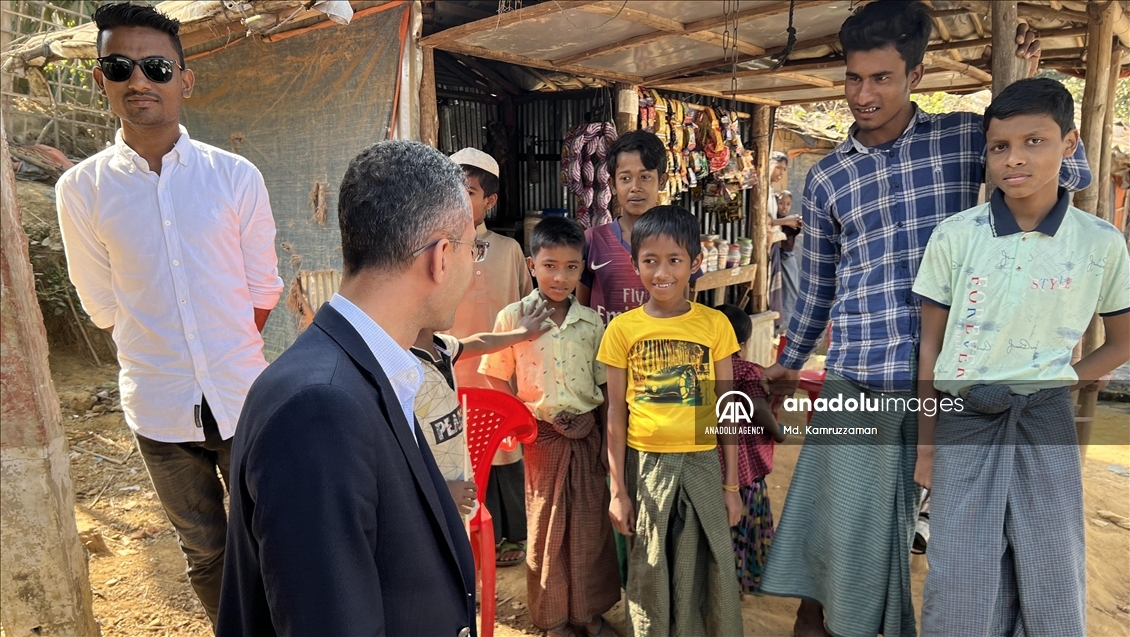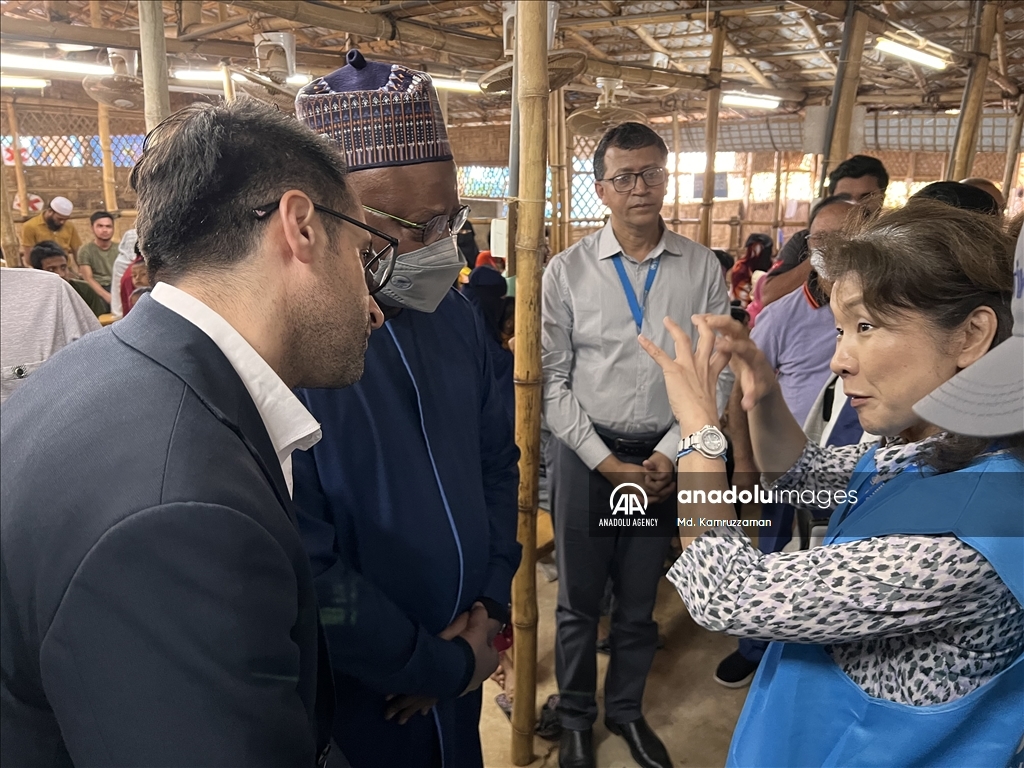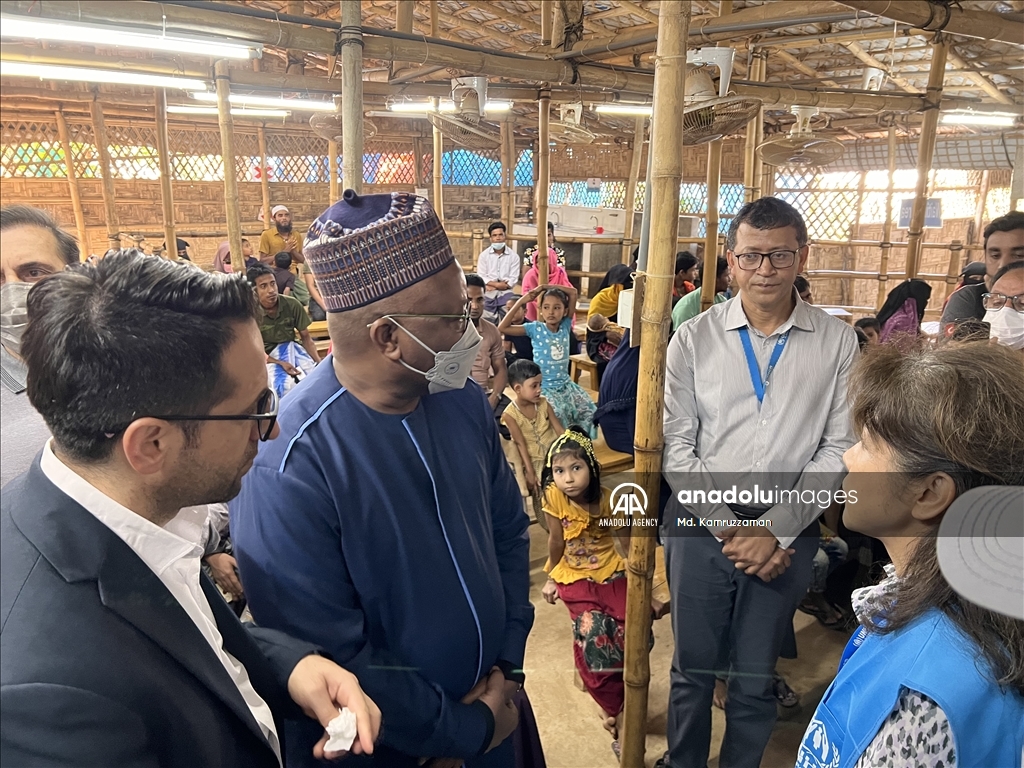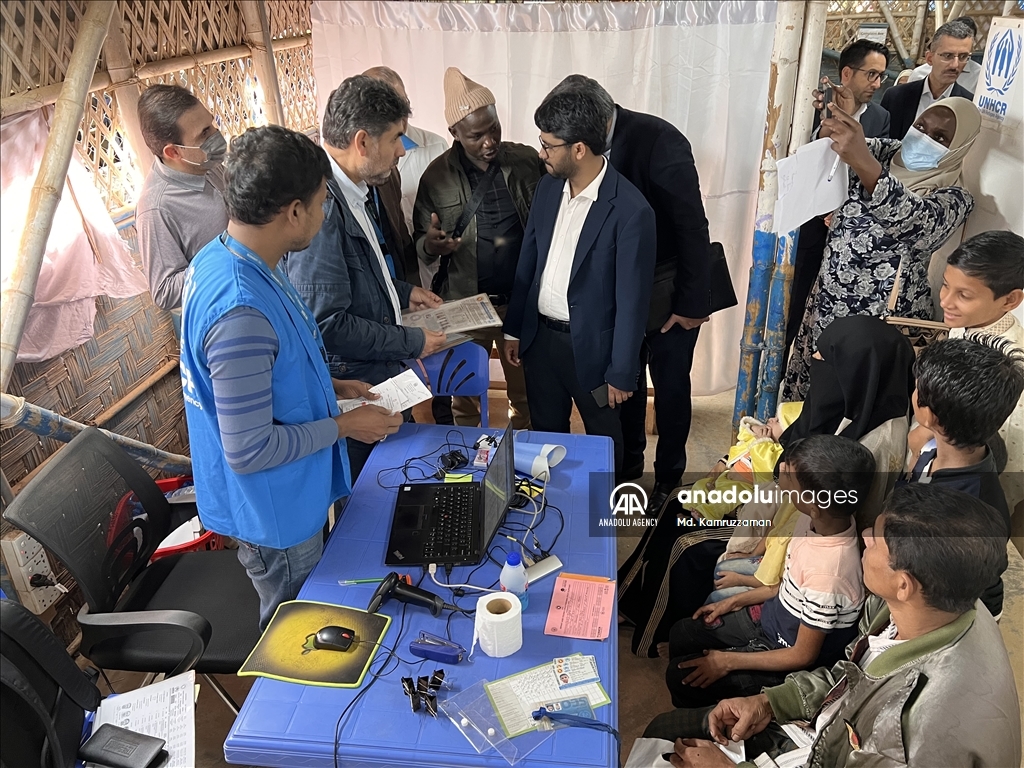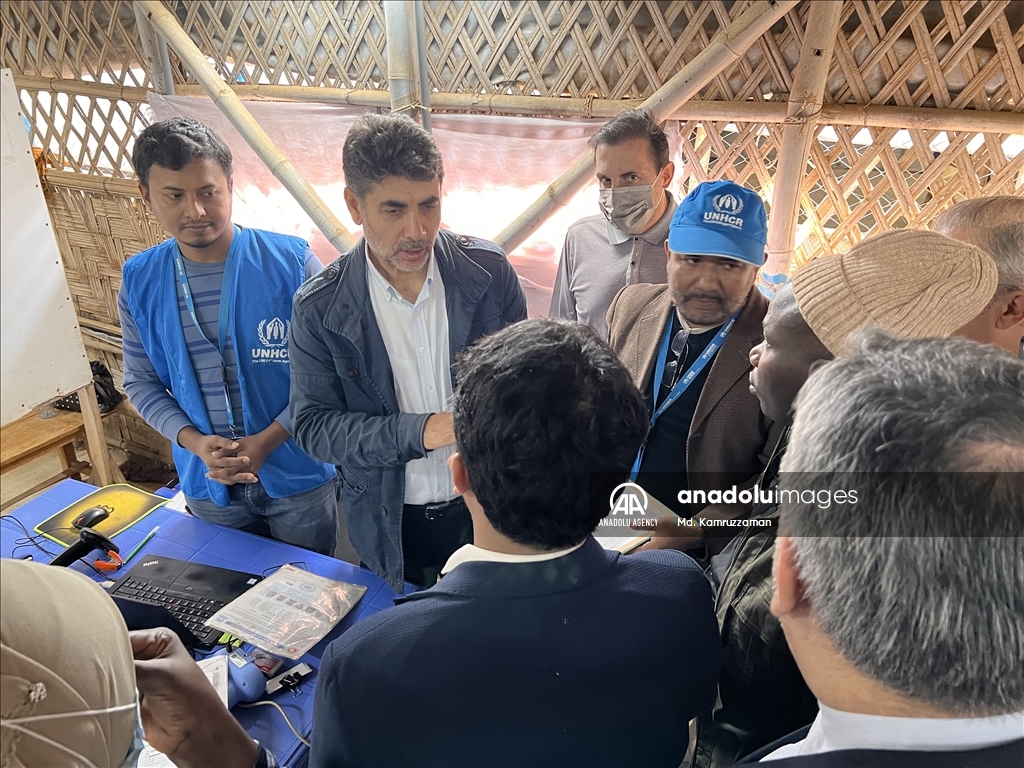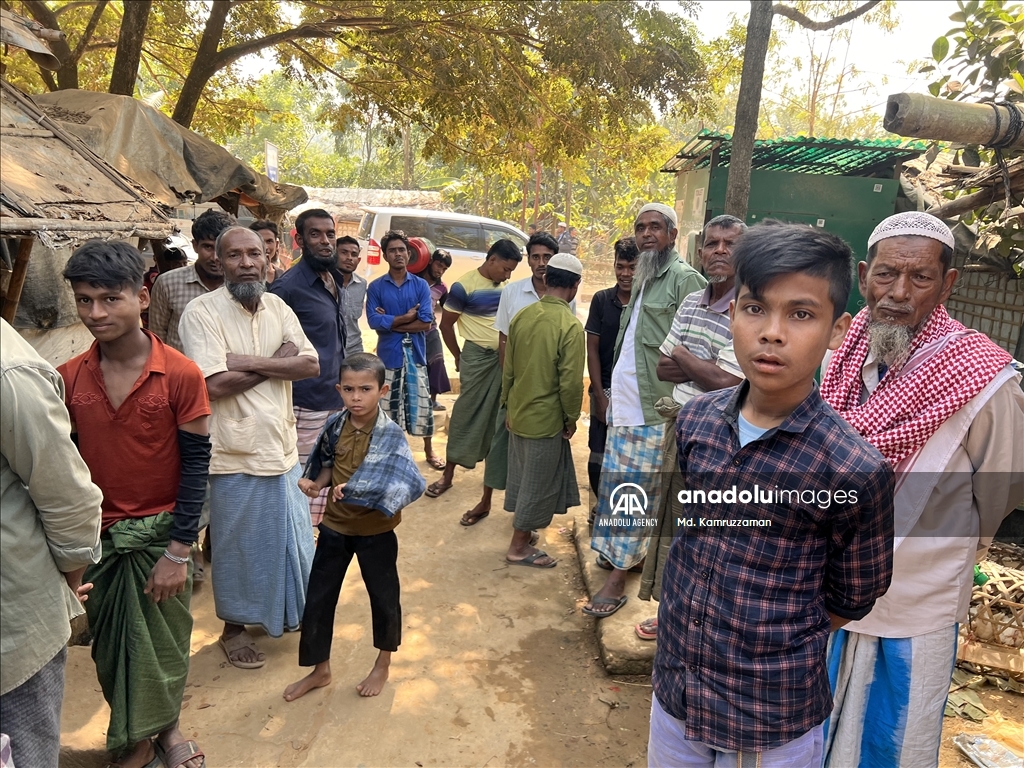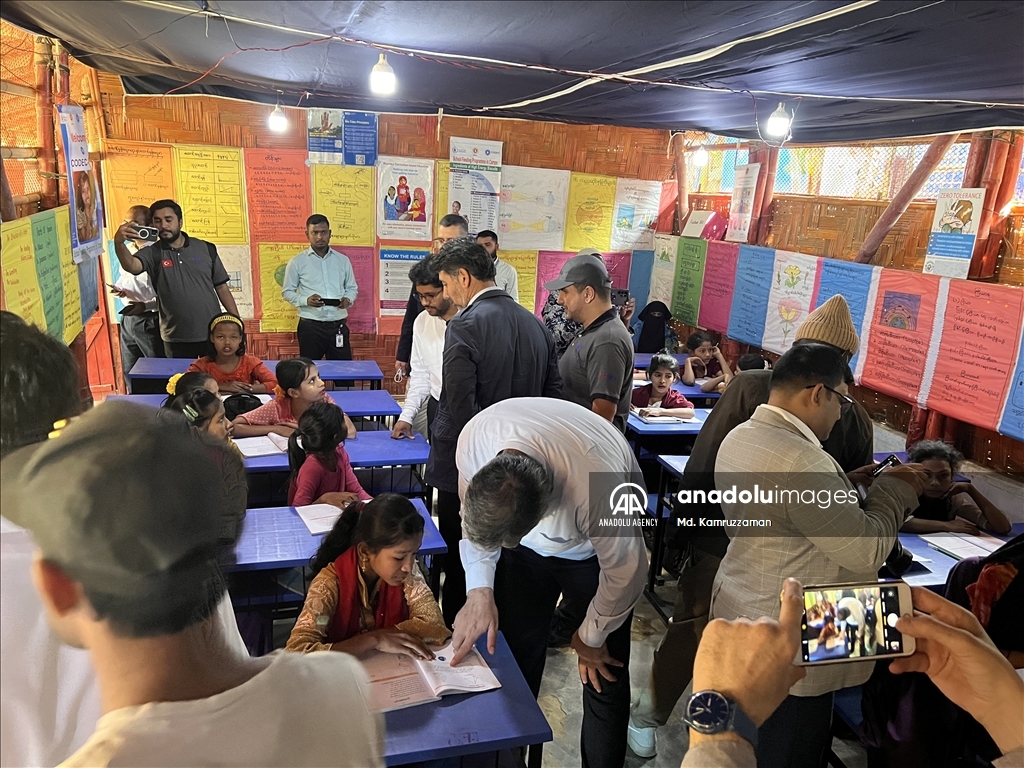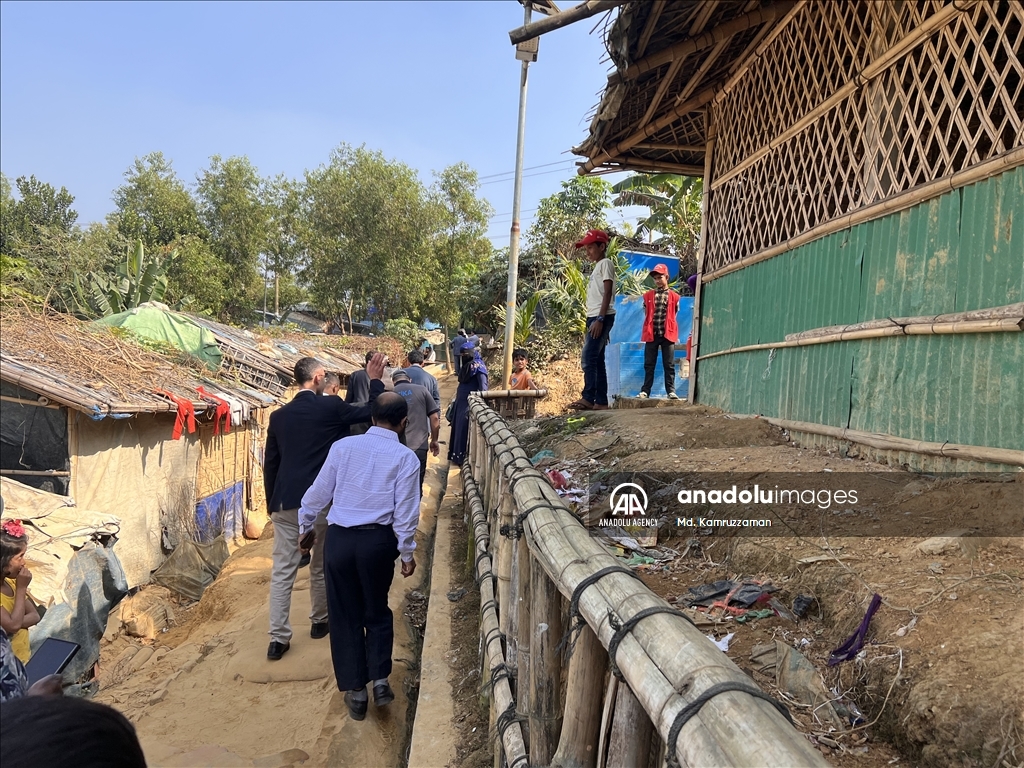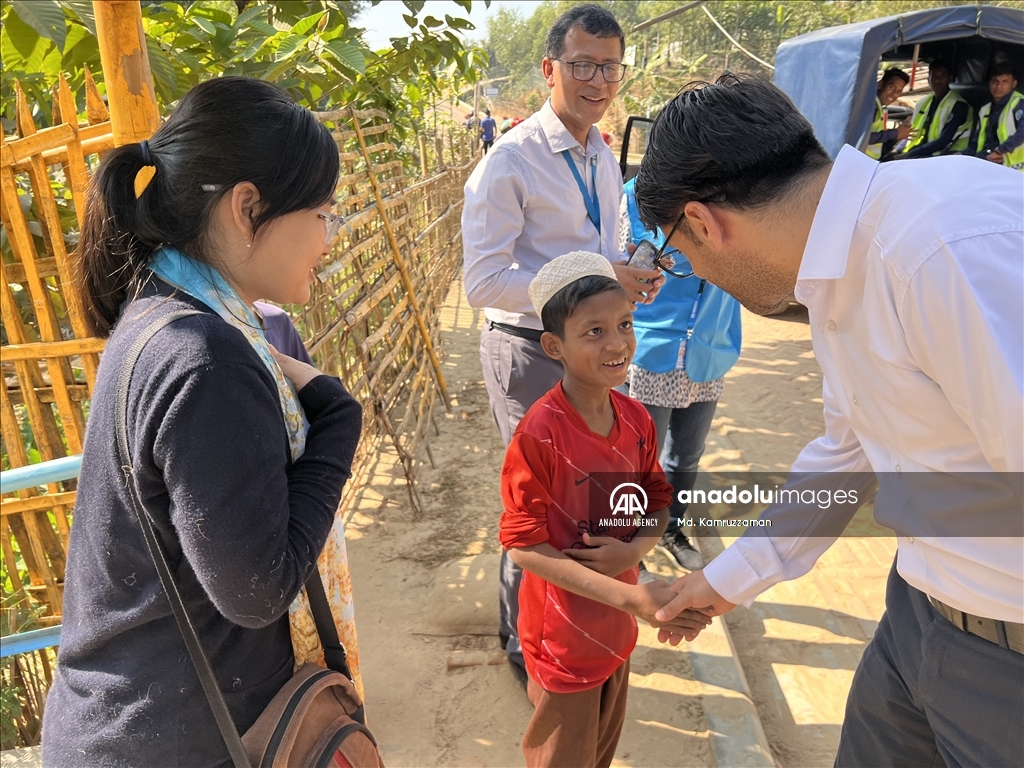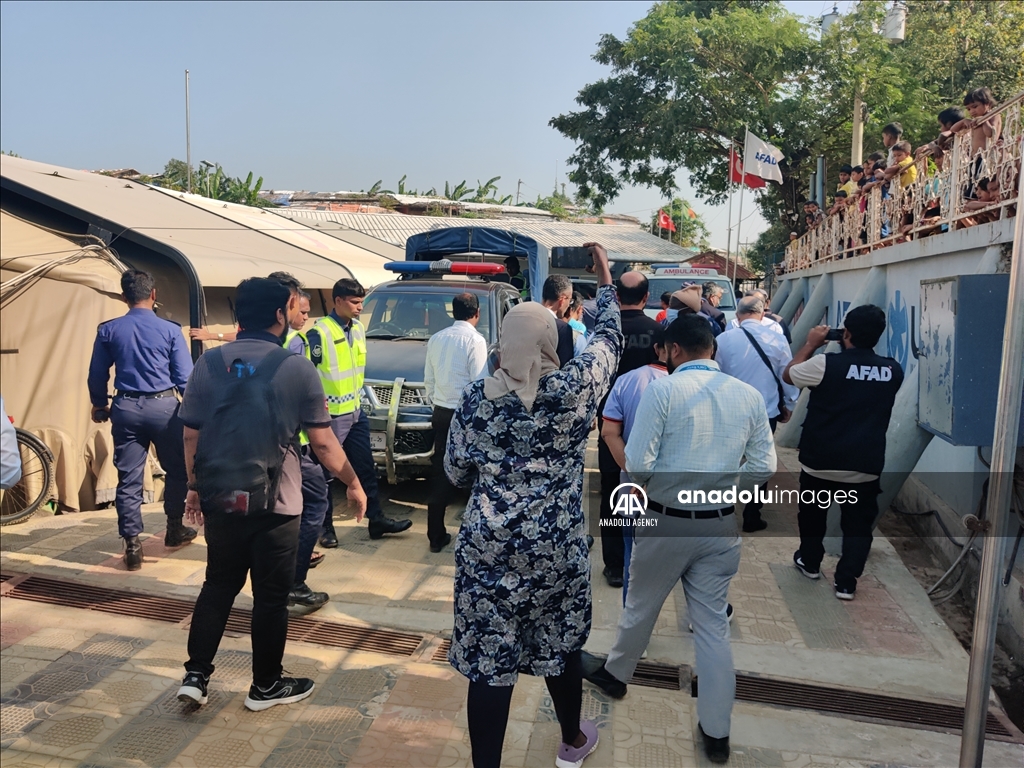High-profile OIC delegation visits Rohingya camps in Bangladesh
Committee on Muslim Communities and Minorities team meets with persecuted refugees in Cox's Bazar to assess their situation

DHAKA, Bangladesh
A high-profile delegation from the Parliamentary Union of the OIC Member States (PUIC) visited Rohingya camps in the southeastern coastal district of Cox’s Bazar in Bangladesh on Tuesday to learn more about the situation of the Muslim minority that was forced to flee their native Myanmar due to military persecution.
An 11-member team from the Committee on Muslim Communities and Minorities, a subsidiary of the PUIC Standing Specialized Committee on Political Affairs and Foreign Relations, led by Turkish lawmaker Orhan Atalay, who is also the chair of the PUIC Delegation of Turkiye and the committee's rapporteur, visited the camp and spoke with refugees as well as representatives from international relief organizations to obtain a better understanding of the situation.
For the first time, a representative team from the Committee on Muslim Communities and Minorities arrived in Dhaka on Sunday on a four-day visit to assess the Rohingya situation in Cox's Bazar, the world's largest refugee camp.
Besides Atalay, the team also includes Mouhamed Khouraichi, Ali Asghar, Zahid Hassan Qureshi, Rezak Tavli, Mustafa Fatih Baydar, Nazmul Islam, and Ugandan lawmakers Bashir Lubega Ssempa and Sitnah Chemisto Cherotich, Iranian parliamentarians Abolfazi Amouei and Amir Abbas Ghassempour.
Bangladesh is currently hosting more than 1.2 million Rohingya, mostly fleeing a brutal military crackdown in their home country of Myanmar's Rakhine State on Aug. 25, 2017.
The delegation met with several Rohingya community members, including women, to hear about their concerns, and they asked for better livelihood opportunities and education for their children, particularly in a third country.
After touring small dwellings in narrow alleys and streets, Atalay told Anadolu Agency that these large numbers of Rohingya want to return to their native country with guarantees of rights, dignity, and safety.
He added that the Muslim community, as well as international leaders, should now engage in more effective talks with Myanmar authorities to ensure their dignified and safe return.
These refugees have been experiencing a number of issues, he said, urging the international community to do more to support the Rohingya in these crammed camps.
He noted that Türkiye is working everywhere it can to help impoverished and needy people, referring to the tremendous health care provided by the Turkish Field Hospital in the Rohingya camp.
According to an official at the facility, the hospital, which is the largest in the refugee camps, serves approximately 1,000 people every day, with 400 of them being Rohingya and 600 being locals.
The delegation saw a food distribution center and various UNHCR facilities, where its operations head, Yoko Akasaka, detailed their humanitarian efforts in the camps.
Speaking to a leading Turkish news service provider, Akasaka raised alarm over the yearly increase in the number of Rohingya in these already overcrowded camps. "Around 50,000 babies are born each year," she noted, expressing concern about the growing refugee population, which necessitates greater assistance in addition to their dignified repatriation to Myanmar.
First day of visit
Earlier on Sunday, the delegation met with Johannes van der Klaauw, UNHCR Representative in Dhaka, at the Turkish embassy to discuss international humanitarian assistance to the Rohingya.
Klaauw expressed gratitude to Turkish authorities for their outstanding support to the Rohingya people, particularly in the health sector through the Turkish Field Hospital.
The UNHCR official also stated that they are primarily focused on humanitarian assistance to the Rohingya, while the political solution is in the hands of the relevant authorities.
She also said the majority of the Rohingya, with the exception of those who fled to Bangladesh following cycles of persecution in the 1980s, want to return to Myanmar with rights and dignity.
Later, the team met with the country's National Parliament Speaker Shirin Sharmin Choudhury, and discussed the Rohingya crisis.
Choudhury cited dignified return as the long-term solution to the Rohingya issue, saying: "Bangladesh is a small, overcrowded country. Because a large number of Rohingya is a major burden, international communities should engage more actively to ensure the peaceful repatriation of Rohingya."
She also urged the delegation to prepare the Rohingya human rights report in such a way that it encourages the international community to find a sustainable solution to the issue, underlining the importance of justice for the crimes committed against Rohingya.
On behalf of the visiting delegation, Atalay stated that Muslim states must act together to protect the persecuted Rohingya people, who have experienced injustice and inhuman treatment in their own country.
The PUIC committee is expected to present its findings on the Rohingya human rights situation in January next year, during a meeting in Algeria.
Anadolu Agency website contains only a portion of the news stories offered to subscribers in the AA News Broadcasting System (HAS), and in summarized form. Please contact us for subscription options.
